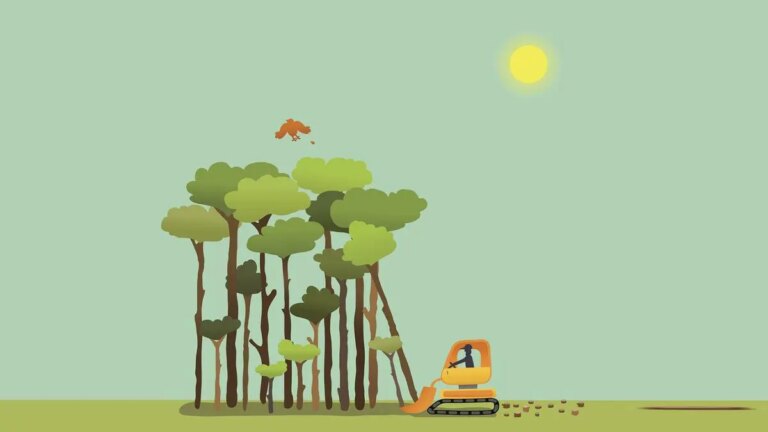
Avete interrupted by the forest being dragged. It comes with JPEG, AI CS2 and AI8 high -resolution files. | Photo credit: Amathers
The GDP gave us a rocket ship. But we are flying blind.
We have sold a story: Progress has always increased the right. GDP is the test. Growth means success. If the number goes up, everyone wins. But what if those stories broke?
This week, a new Verisk Maplecroft report put a price of $ 1.14 billion at climate risk for corporate assets, approximately five years. India, Nigeria, Kenia, Bangladesh, Pakistan: all in the Bullseye. India only has $ 818 billion in S&P 500 exhibition. That is not a future problem. That’s all for now. Growth is roaring. But the ground is cracking. This is what happens with GDP: it was built in the 1930s, in a short world of work and machines, not of nature. The goal at that time? Restart the economy. The GDP did its job. But he doesn’t see the world we live in now. Burn a forest? GDP rises. Bleach a coral reef? GDP rises. Overfish the ocean? Still up. Ecosystems do not count. Biodiversity does not count. Carbon superios, flood tampons, disease regulators: any of that appears. If it is alive and not done well, the GDP ignores it.
We are measuring progress for what we produce and ignoring what we destroy. And we ask ourselves what it seems we are moving forward and falling apart at the same time. Progress is not linear. It is messy. We gain technology and lose stability. We live more and feel worse. The numbers tell a story; The planet tells another. So why do we cling to GDP? Because extraction rewards. Because it is a pact. Because it works, for the people who already win.
As Yuval Harari says, humans are excellent to solve short -term problems. They do not collapse in the slow chamber. The GDP maintains the short -term machine buzzing while the long -term system bends.
And yes, people will put their eyes blank.
“Oh, green GDP? Happiness index? I tried that. It didn’t stick.”
TRUE. It is work in progress. This does not mean that we stop. It means we strive more. With more imagination.
Because the first principles are simple: the purpose of an economy is to help people survive and prosper. If you do not take into account the ecosystems that we are extinguishing, it is not helping us to prosper. He is helping us block. If nature remains invisible to money, it remains invisible for decisions. But here is the change: people are beginning to rewrite the story.
The New Zealand welfare budget traces ecological and social health, not just growth. The UN Marco See helps countries explain nature as capital. Around 70 countries now have a carbon price. The EU is testing biodiversity credits. The Dasguta review of the United Kingdom said what should have been obvious: nature is an asset, and we are managing it badly. These are not hypothetical. They are data points in a new story, one in which survival is more important than production. India cannot afford to lose this turn. Its growth is real. It is also your risk. We do not need to discard GDP. Just stop treating it as the Gospel. Build parallel metrics. Biodiversity monitoring. Tax destruction. Restoration of rewards. If we do not measure what matters, we will lose what matters. And when we notice, it will be too late. The old story got us here. He won the get us out. It’s time to write one better.
The writer is co -founder of Soul Forest and Kheyti (winner of the Earthshot Award)
Posted on May 11, 2025


